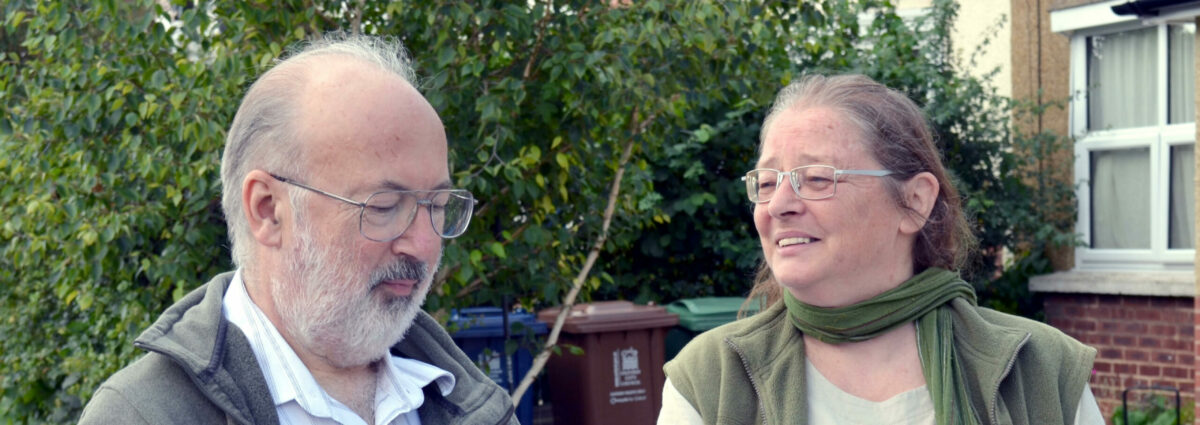Perhaps we should start again. The existing planning system does not serve sustainable transport, Climate, environment and certainly not people. Trying to expedite planning decisions won’t deliver a much larger construction workforce either. See: https://westenglandbylines.co.uk/politics/do-we-need-a-national-planning-policy-framework/
OXFORD NEEDS FEWER CARS FOR BETTER MOBILITY
Mobility is an over-rated idea which needs questioning. Our health requires walking along with other forms of exercise, not sitting in car when 40% of car journeys in Oxford are under 2 miles and rush hour-school runs are seriously congested throughout the City. See my article on this subject:
TYNDALE SCHOOL NEEDS A SCHOOL STREET
The Tyndale School needs a school street in view of its very restricted immediate road space. This should really have been done as the school was built. We have made suggestions to make sure that this is done in an optimum rather than minimal way; too many bits of the infrastructure we need are either done poorly, or not done at all. See:
HOLLOW WAY: BIKES, BUSINESSES AND THE TRAFFIC FILTER
Hollow Way is an extremely badly-congested roads during rush hour-school run times. So, it not surprising that the County Council has been consulting about reducing car parking spaces on the road. However, if done in the way the County has suggested, this removes business parking and is likely to increase speeds on the road considerably, especially in the southern section which is quite narrow. We have made a variety of suggestions to modify their proposals to deal with the problems it would create. SEE:
NATIONAL PLANNING POLICY FRAMEWORK: failing environment and society
The Government is conducting a consultation on amending the National Planning Policy Framework at present. Whilst this is allegedly about amendments to increase the speed of house building, the overall Framework is so bad it needs abolition and following by new legislation and regulations. See our submission below. If you want to make your own comments, see details in our submission, your deadline is Tuesday 24th September:
ADAPTING OUR USE OF TRANSPORT TO THE CLIMATE EMERGENCY
Most references to adapting transport to the range of problems already in progress, and expected, in the Climate Emergency are about infrastructure. Our roads melt in high temperatures, our coastlines are being eroded, stronger storms batter our coastlines including ports, and many locations have roads and rail lines close to sea level. However, adaptation to Climate Change is also about what transport modes we use and how these impact on the Climate. See article on this subject:
Transport: the missing link in adaptation to climate change in the UK
NATIONAL CYCLE NETWORK: REVIEW of book ‘Potholes and Pavements’
Fascinating book by Laura Laker on the evolution of the National Cycle Network. Illustrates the very low levels of funding for cycling in recent decades. For example, spending per person in England on cycling is at about £1 per person per year; in Scotland, the equivalent figure is £58. See review:
More work on transport and environment by Steve Dawe at: https://westenglandbylines.co.uk/author/stevedawe/
THE FIFTEEN MINUTE CITY – new book resists the myths and misinformation
There has been a great deal of uninformed social media chatter about the idea of 15 Minute cities. I have just done a review of the new book by Carlos Moreno: The 15 Minute City: a solution to saving our time and our planet. Review at: https://westenglandbylines.co.uk/society/bookreviews/15-minute-cities-as-mainstream-policy/
I think this book is essential reading for anyone who wants to understand the wide implications of this extremely positive idea. .
Steve Dawe
Other articles: https://westenglandbylines.co.uk/author/stevedawe/
OXFORD LOCAL ELECTIONS AND LOW TRAFFIC NEIGHBOURHOODS
Which areas voted for anti-LTN candidates and why? Oxford has had a fault line running through the City on Low Traffic Neighourhoods with the local newspaper giving many headlines, front pages and column inches to the oft-repeated inaccuracies of those opposing LTNs in Oxford. Despite this, research indicates majority support for LTNs and opposition at no more than about 29%. This article looks at why such candidates were elected. It is worth noting that Oxford’s 11 independents are in no less than 5 different groups since local elections 2024, with no lack of differences on a variety of issues. With assistance from Hazel Dawe:
See:
SUBMISSION: Transport for the South East Strategy
Cowley Area Transport Group submission to this consultation:
